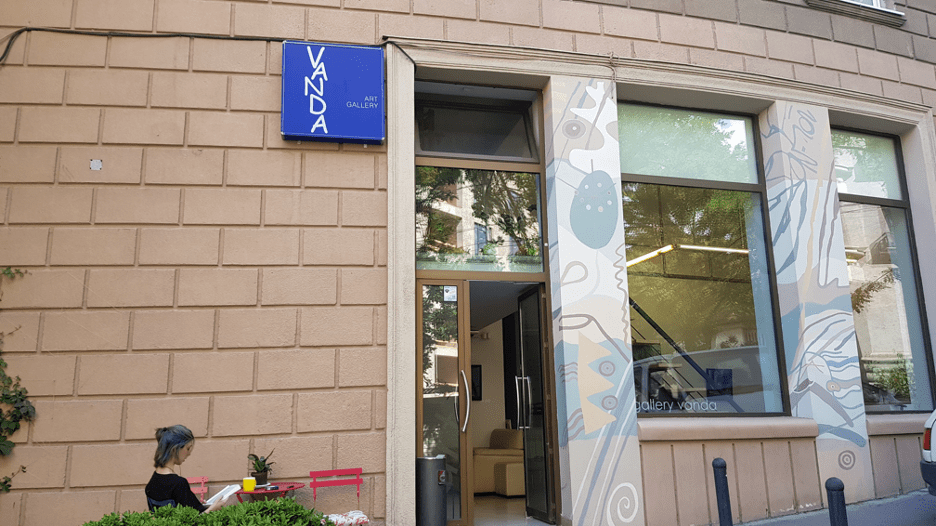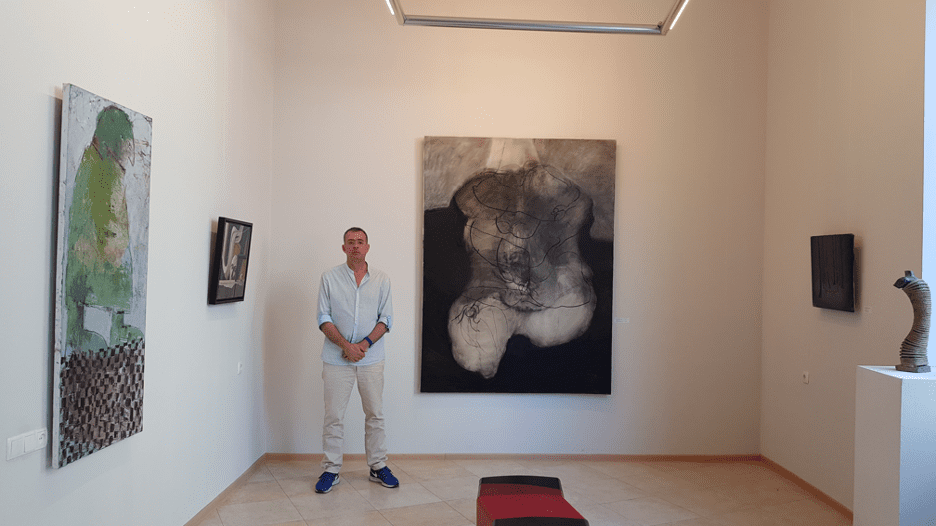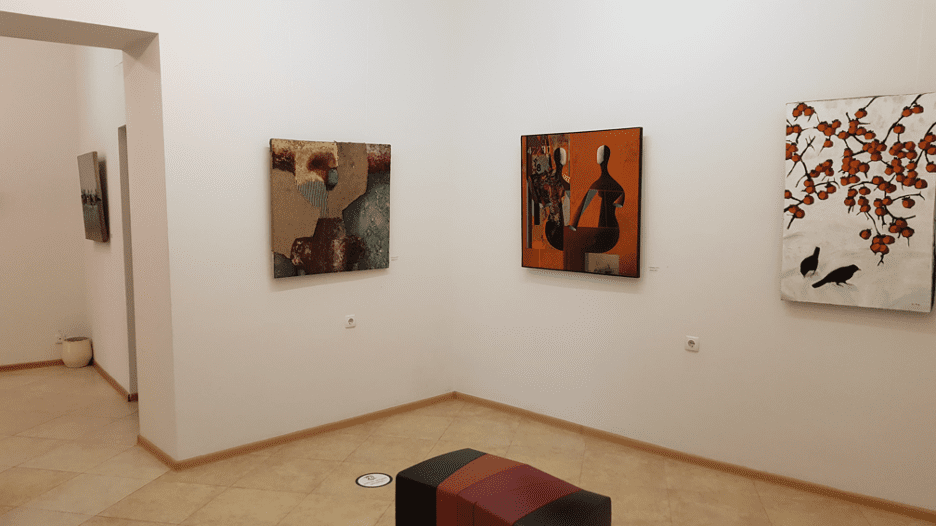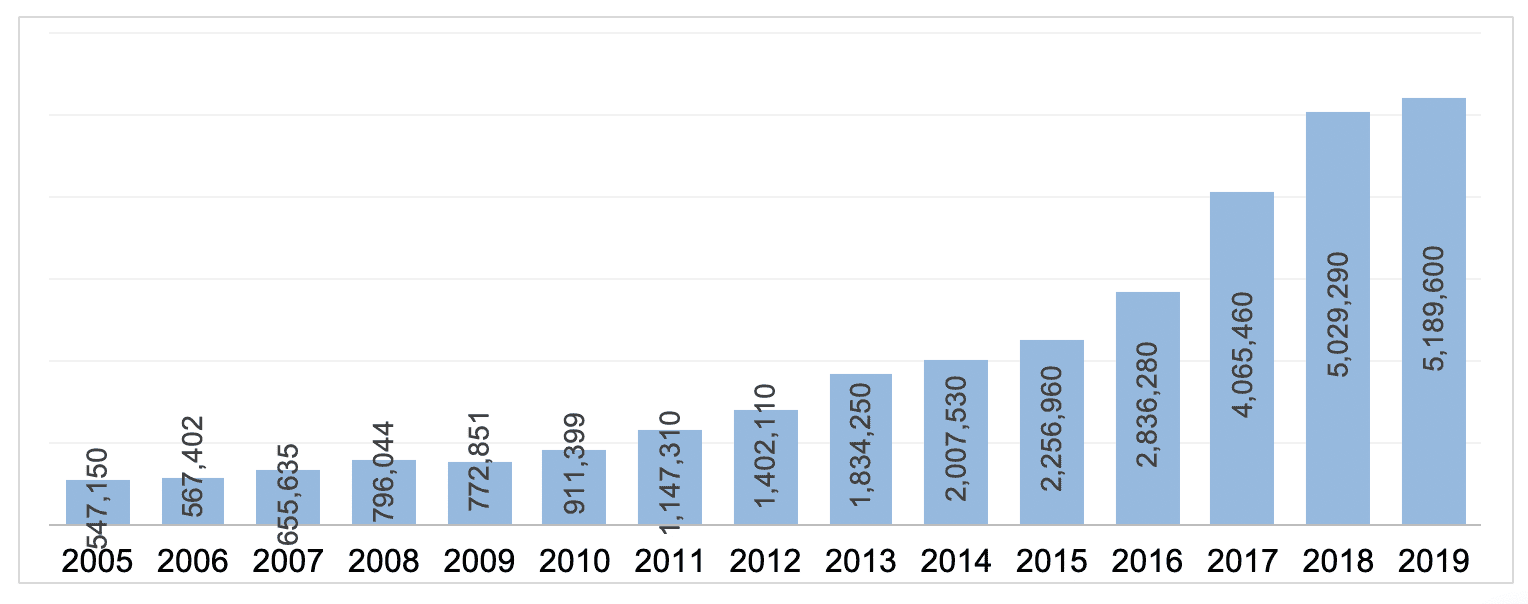Alexander Mujiri, Vanda Art Gallery, gave us this account of how his gallery has adjusted to life during the pandemic. The Vanda Art Gallery (formerly “Hobby Gallery”) is the oldest and first private gallery in Georgia. It was founded by twin siblings Alexander and Vanda Mujiri in 1993, and is located in the historical district of Tbilisi – Sololaki.


As everyone now knows, in Georgia the Corona nightmare started in late February. Unfortunately, I don’t remember the exact dates, but somewhere in March, the Georgian Government announced the State of Emergency and everything was closed. Borders, cities, interstate roads, enterprises, hotels, restaurants, museums and galleries, like the Vanda Art Gallery. All companies and offices started working at a distance from home, where it was possible. My sister and I visited our gallery just for watering the potted plants and to check the safety and condition of artworks. The lockdown continued till the beginning of June.


The lockdown created its own interesting moments. We sold one big painting, which had to be sent to Germany. But we had a huge problem: we needed to build a big wooden box sized 60″ x 84″ x 10″ (150 x 205 x 25 cm), deliver it to the gallery, pack the painting, and take it to the DHL Office. This at a time when nothing unessential was supposed to be moving in Tbilisi. Trust me, it was quite challenging to get around all the obstacles. But we did it!!!


We started redesigning our Gallery webpage, adding some new services in order to start working on online sales; we did the same for our Gallery Facebook page. Almost all new smaller galleries had closed. The Vanda Art Gallery is the oldest and very first private gallery in Georgia. We have a wide guest list and international reputation. We have helped to build numerous large private collections. So we can’t just stop working— our Gallery is our life!
And we have worked in extreme conditions before. When we established the Gallery in 1993, Georgia and Tbilisi were in the midst of the civil war. We got through that, so we know we can get through the coronavirus.
Today our Gallery is open and operates during its usual times, daily from 12:00 noon until 19:00, and by appointment.


Georgia is not Germany, where their government has the ability to able to provide monetary support to artists and galleries in this pandemic period. But the artists continued to be very active and working, bringing new paintings to the gallery. More than this, we are doing new online exhibitions every 3–4 weeks.
Yes, gallery business had stopped for the first two months and now it is very slow, not just because of the absence of tourists. Our gallery doesn’t depend only on tourists. But when the pandemic caused the economy to plummet, our situation took a turn for the worse. But we are optimistic and hoping that the situation will improve in late summer. Just praying that a second wave will not start here, or anywhere else in the world, for that matter.
One bit of sad news: Two years ago, the Tbilisi Art Fair (TAF) was established and it was an unexpectedly huge success! More than 27 countries participated, and the following year, it was even more spectacular. Everyone was waiting for the third Fair, in May. Of course, that didn’t happen, and now nobody knows if the TAF will survive.


The CEO of “Aviation Consulting Group,” George Molodinashvili, discussed the special needs of the aviation industry during (and after) the pandemic.


The committee’s objectives include facilitating consultation and communication between companies within the aviation industry; addressing important issues for the industry and developing plans, recommendations, or proposals for state institutions to identify problems and resolve them; establishing active cooperation with international organizations for the development of aviation; considering legislative initiatives, and advancing the views and recommendations of the members; bringing together representatives of the member companies and foreign experts; and generally engaging in activities, including educational and training for professional development, that help the aviation sector prosper.
The Georgian aviation sector faced many crises in previous years, like 9/11 and the financial crisis of 2008, but the crisis caused by Covid-19 is unprecedented in the scale of operational and financial consequences. In 2019, a total of 63 airlines operated regular flights at three international airports in Georgia, with 88 different destinations; and a total of 20,802 flights were operated. Passenger traffic in 2019 was 5,189,599. In 2005–2019, the aviation industry was one of Georgia’s fastest growing industries, with an average growth rate of 18.03%.


Since the announcement of the state of emergency and the closure of airspace, up to 5,000 regular passenger flights have been cancelled, a serious blow to the aviation industry, which generates 4% of GDP and directly employs about 6,000 people in Georgia.
The pandemic situation in Georgia and in countries to which we aim to resume regular flights creates some large challenges. And once the flights are resumed, we face the prospect of lower demand in the market, with all the implications for generating sufficient revenues to cover operating costs in a very competitive environment.
The aviation committee and its members are working to develop a long-term vision for tackling the crisis. Support from the government, such as tax preferences, affordable financial resources, and reductions of airport charges will be essential, as they will have an immediate impact on our ability to preserve human resources developed over decades and to cover taxes and other financial obligations.
As for the long-term perspective, first and foremost, the country needs a comprehensive aviation strategy that will include an action plan for any crisis that the industry may face. We can improve the investment climate and attract new investors in the aviation market by facilitating new regulations that establish favorable conditions for airline registrations in Georgia. In this regard, Malta provides a revealing example.
Establishing Free Economic Zone (FEZ) on the territory of Tbilisi and Kutaisi airports is also highly desirable, as this would encourage the development of both aviation and related businesses on the territory of the airports. In this regard, Dubai’s Jebel Ali Airport is an example to be studied.
In a nutshell, our largest challenge is uncertainty. We assume that the emerging market will feature low demand, which makes capacity planning difficult for operations (e.g., ticket bookings, allocating slots at the airports, activities critical for resuming regular flights). It is hard to know at this moment when the pandemic and its aftereffects will be over; how fearful passengers will be of flying to and from Georgia; and the impact of the crisis on associated industries. But we are hopeful and determined to make things work.
